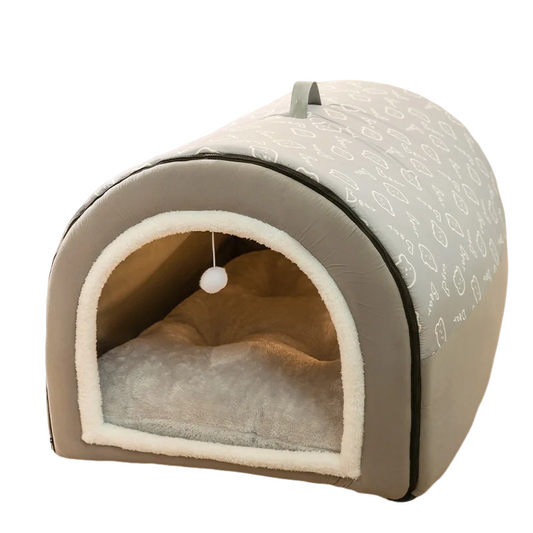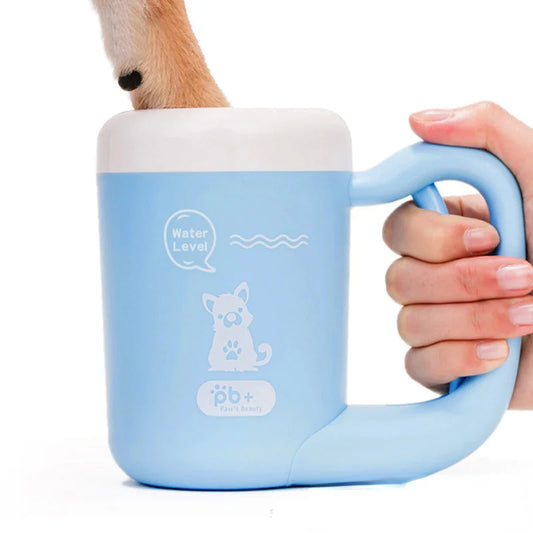
How to Care for Kittens: Comprehensive Guide
Share
Introduction
Taking care of kittens involves more than just providing food and water. They require special care and attention to ensure they grow up healthy and happy. As the guardian of a kitten's early life, you need to understand their physiological needs, health requirements, and how to foster their social skills. This article will guide you through scientifically backed methods to care for kittens, ensuring they thrive.
1. Feding Needse
For kittens under four months of age, free feeding is essential. Since their bodies develop rapidly, and their ability to regulate blood sugar is not yet mature, frequent feeding is necessary to prevent hypoglycemia. It’s especially critical in the early stages:
- Kittens less than two weeks old: Need to be fed every two hours. At this stage, kittens rely primarily on their mother's milk, or formula if they are orphaned. The amount of food should be adjusted according to their weight—following veterinary advice is crucial to avoid overfeeding.
- Kittens two to four weeks old: Should be fed every three to four hours. During this period, kittens may begin to try soft, moist food, but milk remains their main source of nutrition.
- Kittens four to eight weeks old: Can be fed every five to seven hours. By this stage, their digestive system matures enough to handle solid food, so gradually transitioning to kitten-specific dry or wet food is ideal.
Up to four months of age, feeding kitten-specific food is crucial. Kittens have higher nutritional requirements than adult cats. Their diet should contain at least 30% protein to support muscle and organ development. Kitten food also contains essential vitamins and minerals, such as vitamins A, D, and calcium, which are vital for bone and immune system development. Additionally, the smaller kibble size of kitten food is designed to accommodate their developing teeth and ease chewing and digestion.
2. Environmental Needs
Kittens have limited ability to regulate their body temperature, so providing a warm and safe environment is critical. Newborn kittens, especially in the first two weeks of life, rely on external heat sources to stay warm. Here are the recommended temperature controls:
- For kittens under two weeks old: It’s recommended to keep the environment at around 30°C (86°F). In the absence of the mother cat, a heating pad or incubator can be used to provide additional warmth. Ensure the heating source is safe and won't cause burns.
- For kittens two to four weeks old: Their ability to regulate temperature improves, and you can lower the room temperature to 24-27°C (75-80°F). Provide a warm bed with soft blankets or towels for extra comfort.
Maintaining a clean environment is also essential for kittens' health. As their immune systems are still developing, they are susceptible to infections. Keep their litter box and living area clean to prevent bacterial and viral contamination. Use litter designed for kittens, which is softer on their delicate paws and reduces the risk of irritation.
3. Vaccinations and Deworming
To ensure the health of your kitten, a proper vaccination schedule should be followed as recommended by a veterinarian. The first core vaccines are typically administered between six to twelve weeks of age and include two primary vaccinations:
-
Feline panleukopenia (FPV) vaccine: Panleukopenia is a highly fatal viral disease that weakens a cat's immune system by destroying white blood cells. Symptoms include vomiting, diarrhea, dehydration, and in severe cases, death. Vaccinating against FPV is crucial to protect kittens from this deadly disease.
-
Feline herpesvirus (FHV) and calicivirus (FCV) vaccine: These viruses cause respiratory infections in cats, including runny nose, sneezing, and eye infections. Early vaccination helps kittens avoid the long-term impacts of these viruses.
In addition to core vaccines, veterinarians may recommend non-core vaccines such as the feline immunodeficiency virus (FIV) and feline leukemia virus (FeLV) vaccines. These are often suggested for kittens that will be in contact with other cats.
Regular deworming is also critical to the health of kittens. Internal parasites such as roundworms and tapeworms can stunt a kitten's growth, while external parasites like fleas and mites can cause skin irritations and infections. A deworming schedule should be set with your veterinarian to ensure proper treatment.
4. Nail Trimming and Scratching Opportunities
Trimming a kitten’s nails is an important part of their care routine. Starting this habit early not only prevents damage to household furniture but also reduces the risk of kittens injuring themselves. Use a cat-specific nail clipper, and trim only the sharp tip of the nail, avoiding the sensitive blood vessels (known as the quick).
Additionally, providing plenty of scratching opportunities is essential for their physical and mental well-being. Scratching helps kittens maintain healthy nails, stretch their back and shoulder muscles, and release pent-up energy. Scratch posts and pads placed around the house in accessible areas will encourage healthy scratching behavior.
5. Litter Box Training
Training kittens to use a litter box is a crucial part of their early development. Initially, confining them to a small, enclosed space like a bathroom or laundry room can make the training process easier. These areas are typically easy to clean and allow the kitten to focus on learning proper litter box use. As they become comfortable, you can gradually expand their access to larger areas of the home.
Use a low-dust, non-toxic litter designed specifically for kittens to reduce the risk of respiratory issues and skin irritation. It's also important to clean the litter box regularly—kittens prefer a clean environment and may avoid using a dirty box.
6. Safety and Socialization Training
Kittens are naturally curious, and they often explore their environment by biting, chewing, and scratching. It’s important to kitten-proof your home by removing dangerous items, including poisonous plants (like lilies and cacti), small objects that could be swallowed (like rubber bands and string), and any harmful chemicals. Ensure that prescription medications and cleaning supplies are stored safely out of reach.
Socialization is crucial for kittens’ psychological development. Between 7 and 14 weeks of age, kittens are in a sensitive period where their brains are rapidly developing, and they are most open to learning from their environment. Introducing them to different people, animals, and new surroundings during this time helps reduce their fear of the unknown later in life. Positive experiences during this period contribute to the development of a well-adjusted, confident adult cat.
7. Outdoor Exploration and Leash Training
While many cats enjoy outdoor exploration, the outside world can be dangerous for untrained kittens. One way to let kittens safely enjoy outdoor activities is through leash training. Start by getting them used to a harness indoors, gradually introducing the leash, and allowing them to explore at their own pace. Beginning this training at a young age makes kittens more likely to accept leash walking, providing them with a secure way to enjoy the outdoors.
8. Regular Veterinary Checkups and Pet Insurance
Regular veterinary checkups are essential to monitor your kitten's growth and health. Around 16 weeks of age, they should receive a full vaccination schedule, deworming treatments, and a general health assessment. Regular vet visits can catch potential health issues early, ensuring your kitten stays on the path to a healthy adulthood.
Consider investing in pet health insurance to protect against unexpected medical expenses. Many pet insurance policies cover more than just emergencies, including routine care such as vaccinations, wellness exams, spaying or neutering, and dental care. Having insurance ensures that you can provide the best care for your kitten without worrying about financial constraints.
Conclusion
Caring for a kitten requires love, dedication, and scientific knowledge. From proper feeding schedules and environmental controls to regular health checkups and socialization training, every aspect plays a crucial role in ensuring the health and well-being of your furry companion. By following this comprehensive guide, you can provide your kitten with a safe, warm, and nurturing environment where they can grow and thrive.
References
- Belsito, K. R., Vaden, S. L., & Gookin, J. L. (2019). Nutritional management of the young kitten. Journal of Feline Medicine and Surgery, 21(8), 712-720. https://doi.org/10.1177/1098612X19857422
- Little, S. (2011). Feline pediatrics: how to treat the small and the young. The Veterinary Clinics of North America: Small Animal Practice, 41(5), 787-807. https://doi.org/10.1016/j.cvsm.2011.05.013
- Day, M. J., Horzinek, M. C., & Schultz, R. D. (2016). Vaccination guidelines for cats and dogs: report of the vaccination guidelines group of the World Small Animal Veterinary Association. Journal of Small Animal Practice, 57(1), 4-13. https://doi.org/10.1111/jsap.2_12431
By referencing these scholarly resources, you can ensure that the care provided to your kitten is based on the latest scientific findings.














